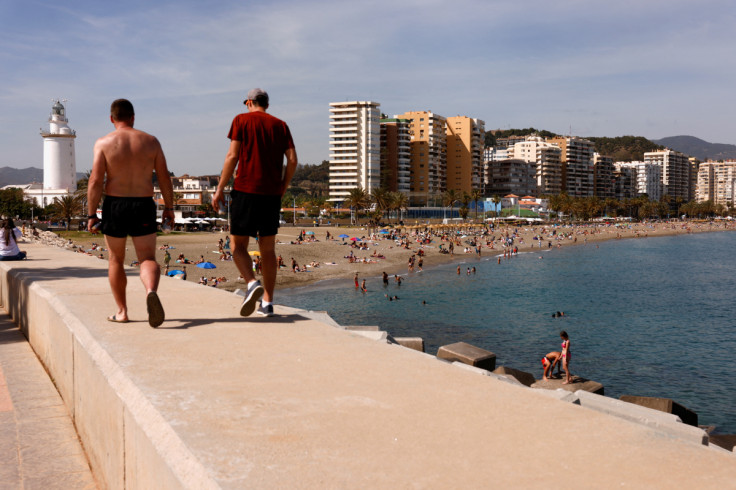Holidaymakers face £648 fine for breaking simple rule at Spanish beaches
Spain has introduced several strict laws this summer.

Holidaymakers heading to Spain this summer must be aware of another beach-related rule to avoid a hefty fine.
Considering Spain is just a short flight away from the UK, it is one of the most visited summer destinations by travellers from Britain. Every summer, Spain attracts millions of tourists for its warm weather, beautiful resorts and gorgeous coastline.
What is the beach-related rule in Spain?
With the peak summer travel season underway, tourists and locals have been reminded that using soap and shampoo is banned while using the showers near beaches. Anyone caught breaching the rule could face a fine of around £648 (€750), according to Liverpool Echo.
The ban on shampoo and soap near beaches has been implemented in many regions, including holiday hotspots such as Malaga, Benidorm and Valencia. The ban has been introduced because certain products have chemicals in it, which can make their way into the water system and can be extremely harmful to marine life.
During a vacation in Spain, trips to the beach are common among tourists, especially from Europe. Almost all the popular spots along the coast in Spain have showers for visitors' convenience. And because of so much sand, people tend to use these showers regularly. Therefore, when tourists are getting ready for the beach to enjoy the sun and have a relaxing time, they must not ignore the local laws and customs. Otherwise, they'll be forced to shell out a lot of euros in the form of fines.
It is also understood that Spain is so careful that if there is a water shortage in some areas, the beach showers there are switched off. Meaning, people drenched in sand are forced to return to their home or hotel to take a shower.
Smoking bans at several Spanish beaches
Meanwhile, Spain has another strict beach rule. Smoking is banned across several coastal parts of the country. The police are believed to be doing a crackdown on a tally of 28 beaches across the country including Barcelona and the Balearic islands. In these beaches, both residents and tourists are now banned from smoking.
The fine for this rule's transgressors varies between municipalities but could be as high as £1,725 (€2,000).
The mainland city of already introduced a ban on smoking on all of its 10 beaches since last summer. Those who break the rules could receive a €30 fine.
These smoke-free zones are a part of the country's plan to improve people's health and reduce the huge problem of cigarette butts being left on the sand. It is also intended to protect the environment and ensure the right of citizens to enjoy a clean, unpolluted space which is free of smoke.
Barcelona's strict rules for this summer
Barcelona receives nearly 27 million visitors annually and it has introduced strict rules against drinking alcohol in the street, urinating in public and painting graffiti on public buildings.
The penalty for drinking alcohol in the street in Barcelona has been raised to a maximum of £520. Anyone found urinating in public could be slapped with a fine of £260, raised from the previous £170. And those found painting graffiti risk receiving a hefty fine of £430, an increase from the previous maximum of £260.
Meanwhile, It was earlier reported that beachgoers should remember that if they are in Mallorca, they could be slapped with an £800 (900 euros) fine if they jump into the Mediterranean. The ban against diving into the sea was introduced amid a number of serious incidents.
Mallorca's two beach towns Alcudia and Muro are famous for their natural beauty, boat trips and pristine sands. However, officials have been forced to put in strict rules for the safety of tourists as reckless swimmers have been using the jetties as diving boards.
Young tourists are commonly unaware of the lack of depth at the Bay of Alcudia and Playa de Muro. Both beaches are known for their calm and shallow waters, but the reckless beachgoers still toss themselves off the jetties despite warning signs in place.
© Copyright IBTimes 2024. All rights reserved.






